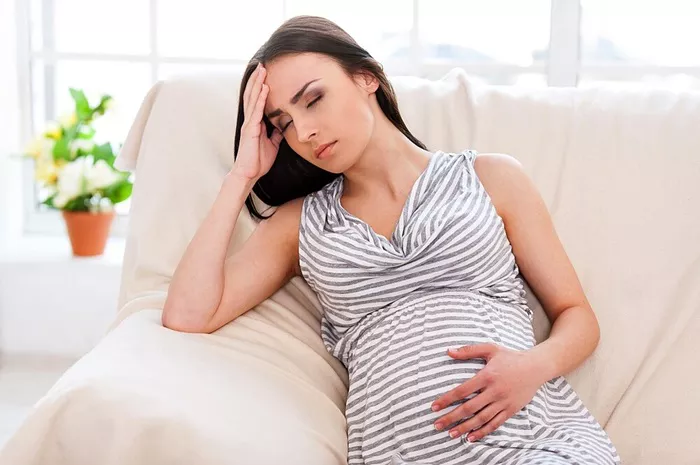Pregnancy is a natural process that depends on the timing of ovulation and sperm availability. Many women wonder whether it is possible to conceive shortly after their period ends. Specifically, can you get pregnant just 2 days after your period? This article will explore the factors that affect fertility and discuss how the menstrual cycle, ovulation, and sperm survival contribute to pregnancy possibilities.
Understanding the Menstrual Cycle
The menstrual cycle is the series of changes a woman’s body goes through to prepare for a potential pregnancy. It typically lasts 28 days, but it can range from 21 to 35 days. The cycle is divided into several phases:
The Follicular Phase
The follicular phase begins on the first day of menstruation (your period) and lasts until ovulation. During this time, the body produces hormones that stimulate the ovaries to develop eggs.
Day 1-5: Menstruation occurs. The uterine lining sheds because no pregnancy has occurred.
Day 6-14: The body begins to prepare for ovulation. Follicles in the ovaries start developing eggs.
Ovulation
Ovulation typically occurs around day 14 of a 28-day cycle, though this can vary depending on the individual. During ovulation, the mature egg is released from the ovary into the fallopian tube, where it can be fertilized by sperm.
Day 14 (on average): Ovulation occurs. This is when you are most fertile, and pregnancy is most likely to happen if sperm is present.
The Luteal Phase
After ovulation, the luteal phase begins. The empty follicle transforms into a structure called the corpus luteum, which produces progesterone to prepare the uterus for a possible pregnancy.
Day 15-28: If the egg is not fertilized, hormone levels drop, leading to the start of menstruation, and the cycle begins again.
Can You Get Pregnant 2 Days After Your Period?
The possibility of getting pregnant 2 days after your period largely depends on the length of your cycle, the timing of ovulation, and the lifespan of sperm.
Key Factor: Ovulation Timing
Ovulation is the key to understanding pregnancy chances. If a woman has a shorter menstrual cycle, ovulation may occur earlier, potentially within a few days after her period ends. For example:
Shorter Cycles (21-24 days): Women with shorter cycles may ovulate closer to day 7 or 8 of their cycle. In this case, having unprotected sex 2 days after the period could result in sperm being present when ovulation occurs, increasing the chances of pregnancy.
Longer Cycles (30-35 days): For women with longer cycles, ovulation may occur closer to day 16-20. In this case, having sex 2 days after the period is less likely to result in pregnancy since ovulation has not yet occurred.
Sperm Lifespan
Sperm can live inside a woman’s reproductive tract for up to 5 days, depending on factors like cervical mucus quality. If sperm are still present in the fallopian tube when ovulation occurs, there is a chance of fertilization.
Sperm Survival: If sperm are introduced into the body just after menstruation, they may survive and wait for ovulation. This can create the possibility of pregnancy, even if intercourse happens days before the egg is released.
Cervical Mucus and Fertility Window
During the menstrual cycle, cervical mucus changes in response to hormone fluctuations. Around ovulation, cervical mucus becomes more fertile, resembling egg whites. This mucus helps sperm travel to the egg. If you have unprotected sex around the time your body is producing this fertile mucus, the sperm may survive long enough to fertilize the egg when it is released.
Factors That Can Influence Ovulation Timing
While the average cycle is 28 days, many women have cycles that are longer or shorter. Several factors can influence the timing of ovulation, including:
Stress
Stress can affect the release of hormones that regulate the menstrual cycle. High stress levels may cause delayed or early ovulation, which could shift the time window for pregnancy.
Hormonal Imbalance
Hormonal imbalances can alter the timing of ovulation. Conditions like polycystic ovary syndrome (PCOS) can cause irregular cycles, making it harder to predict ovulation.
Medications
Certain medications, including hormonal contraceptives and fertility treatments, can influence ovulation timing.
Age
As a woman ages, her ovulation cycles may become less predictable. Ovulation can occur earlier or later in the cycle, and fertility may decline.
Conclusion
The answer to the question, “Can I get pregnant 2 days after my period?” is that it is possible, but the likelihood depends on your individual cycle and ovulation timing. For women with shorter cycles, early ovulation is more likely, which increases the chances of pregnancy shortly after menstruation. For women with longer cycles, pregnancy 2 days after the period is less probable, as ovulation typically occurs later in the cycle.
In summary, the timing of ovulation, sperm survival, and the length of the menstrual cycle are all important factors in determining whether pregnancy is possible after your period. If you are trying to conceive or avoid pregnancy, understanding your menstrual cycle and monitoring ovulation can help you make informed decisions.
Related Topics:


